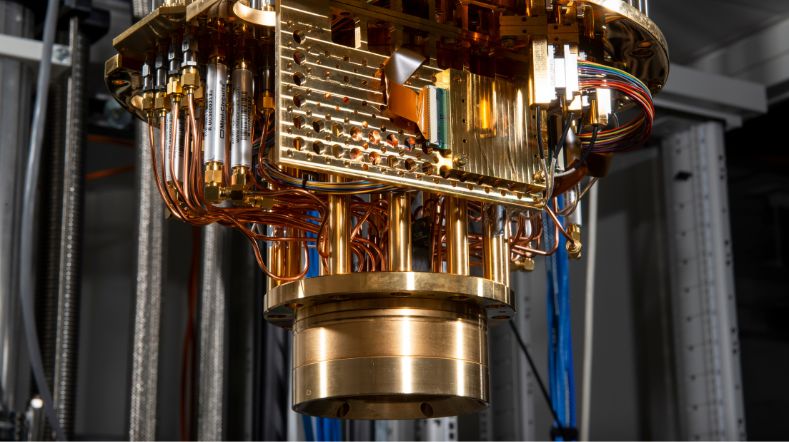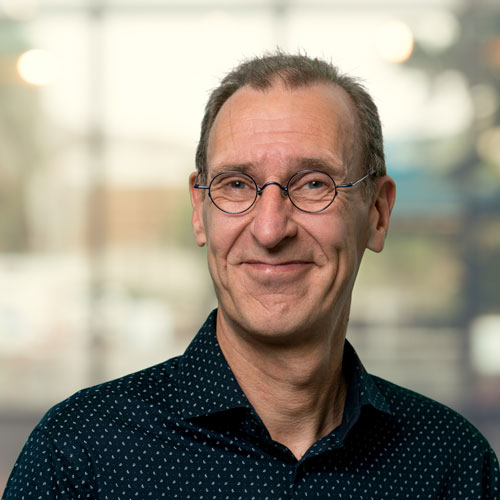
Quantum sensing
TNO aims to accelerate the introduction of quantum sensors to the market by creating an open test facility where we work with universities, companies and end-users to develop and test quantum sensing technologies.
What are quantum sensors?
Like other biological organisms, we are constantly using our senses to collect information about the world around us. In this process of 'sensation', our sensory organs receive external stimuli and transform this into a signal that our brain can process. However, there a limitations to our sensing abilities, and to measure small fluctuations in for example magnetic and electric fields we have to use sensing devices. These devices work in the same way by receiving a stimulus from the environment and transforming this into an (electrical) signal that we can then read out and understand.
Quantum sensors are a type of sensors where quantum mechanical effects like coherence and entanglement are used to translate stimuli into electric signals. Using these effects enhances the sensors' performance, allowing for higher resolution and more sensitive measurements of the quantity you aim to measure. Quantum sensors can be more accurate, efficient and reliable, with practical applications in many fields, from better navigation and radar systems to improved medical detection devices and the ability to monitor climate change.
Accelerating market development for quantum sensing
As many physical systems can act as a quantum sensors, a wide variety of sensors with various applications exist. With stages of development that go from theoretical ideas to commercial products, quantum sensing proofs itself to be a relatively mature technology. However, to reach its full potential, more research must be done, and partnerships between academia, industry, and other sectors are needed to identify and develop new applications and to ensure their societal impact.
At TNO, we want to accelerate the process of bringing quantum sensors to the market and society by creating an open test facility. With the support of Quantum Delta NL and in collaboration with TU Delft, we are creating this Testbed where universities, companies, and end-users can work together to develop the technology and its applications.
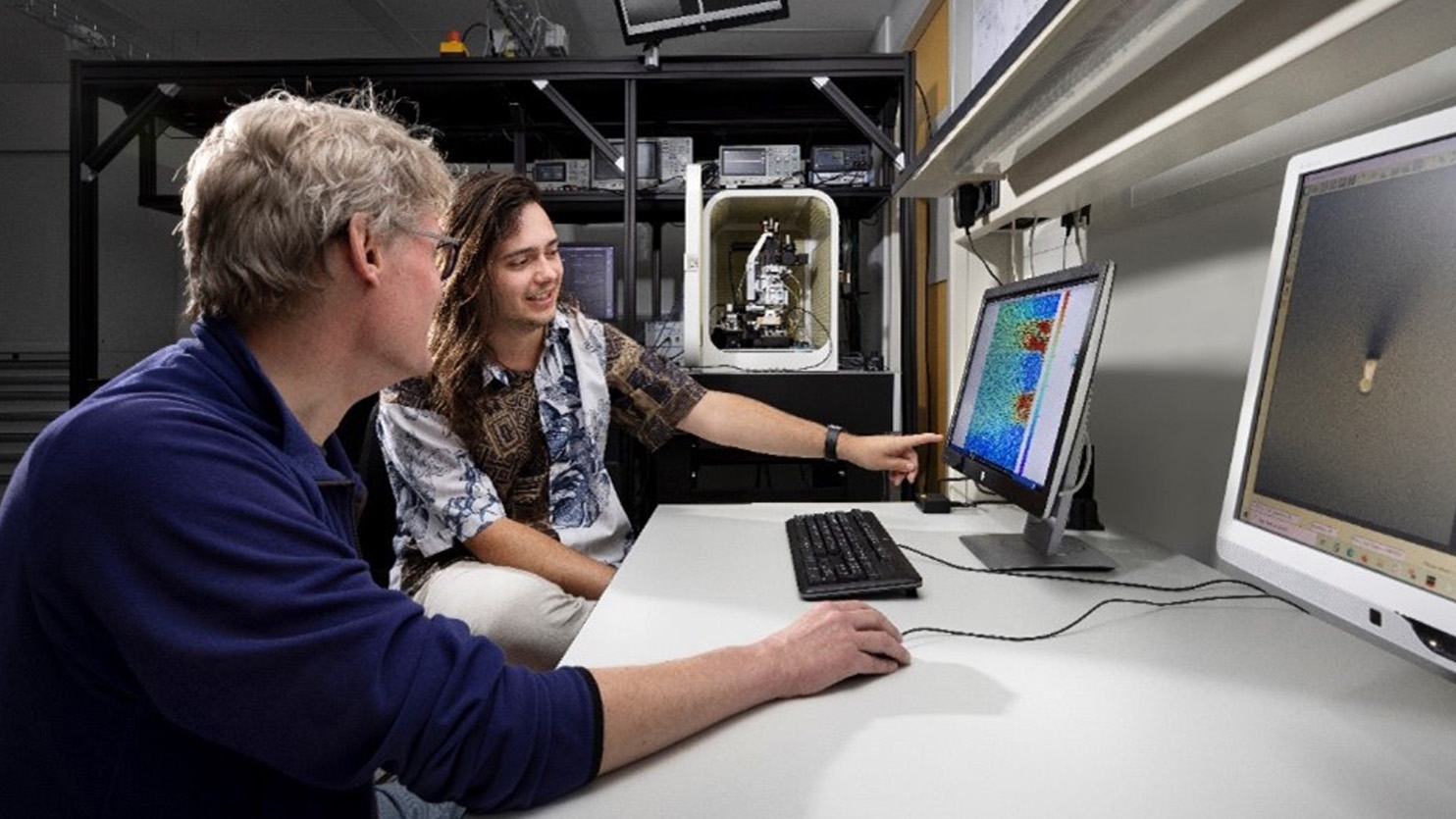
NV-based quantum sensors
The quantum sensing instruments in our testbed facility are based on Nitrogen Vacancy (NV) centres on diamond. These centres are defects on the diamond lattice, where a nitrogen atom and a vacancy (i.e. a missing atom) substitute two neighbouring carbon atoms. These NV centres can emit light in a way that is dependent on external physical parameters like microwave or magnetic fields. By measuring the outcoming light, NV centres therefore enable the detection and imaging of weak magnetic fields with high spatial resolution. Our testbed facility is equipped with instruments that use single NV centres and ensembles of NV's to detect magnetic fields, currents, rotation and temperatures. Each instrument has a different performance and, therefore, different potential use-cases as shown below:
Quantum sensing instruments
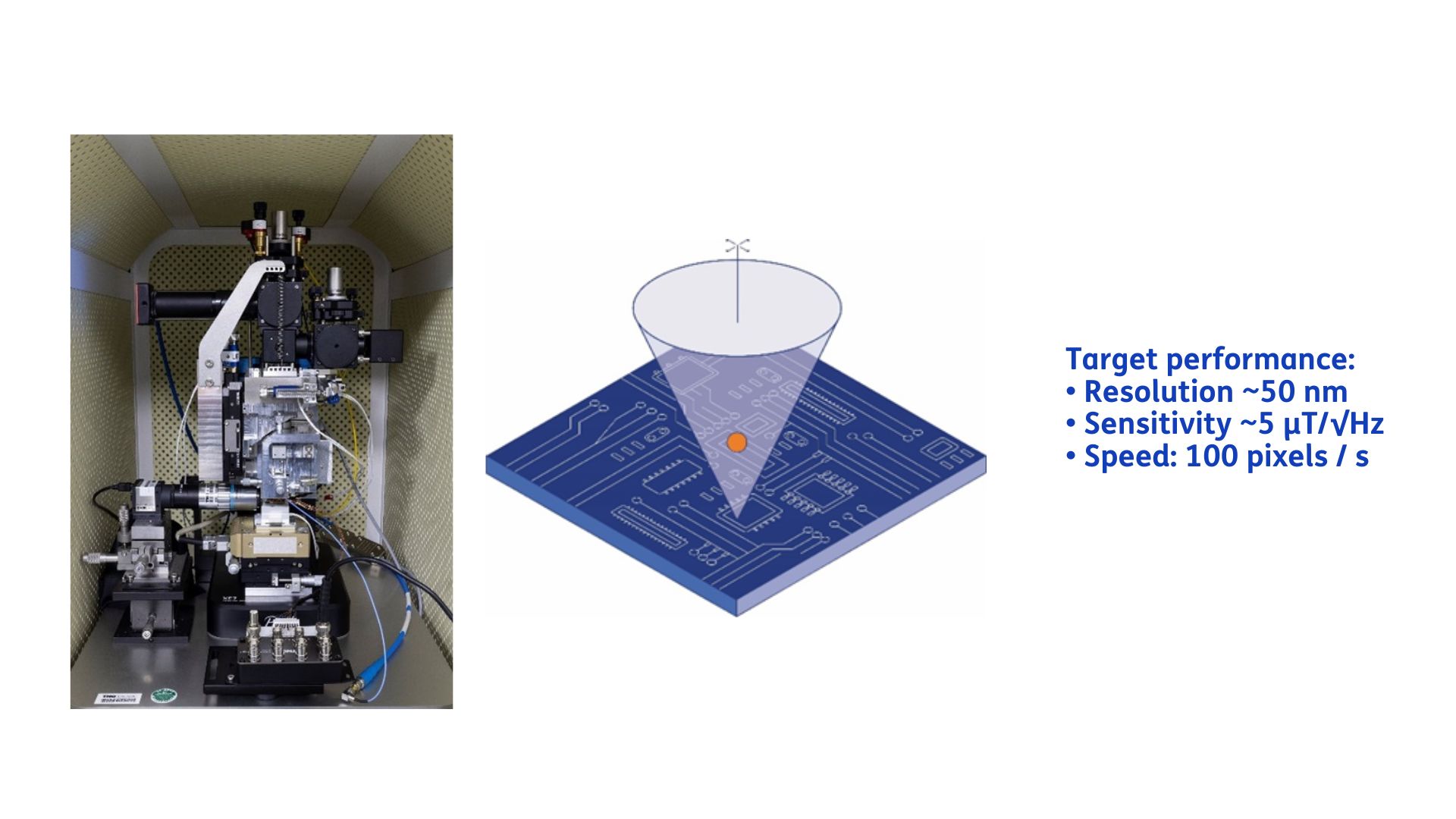
This advanced instrument combines atomic force microscope (AFM) elements with a single NV centre. Integrating the AFM into an optical system and placing a diamond with a single defect on the tip of the AFM makes it possible to scan the NV sensor over the sample and create an image of the magnetic field produced by the sample. This non-invasive way of measuring allows for high-resolution measurements of magnetic fields, currents and temperatures, which is important for the metrology of 2D materials and characterisation of semiconductor devices.
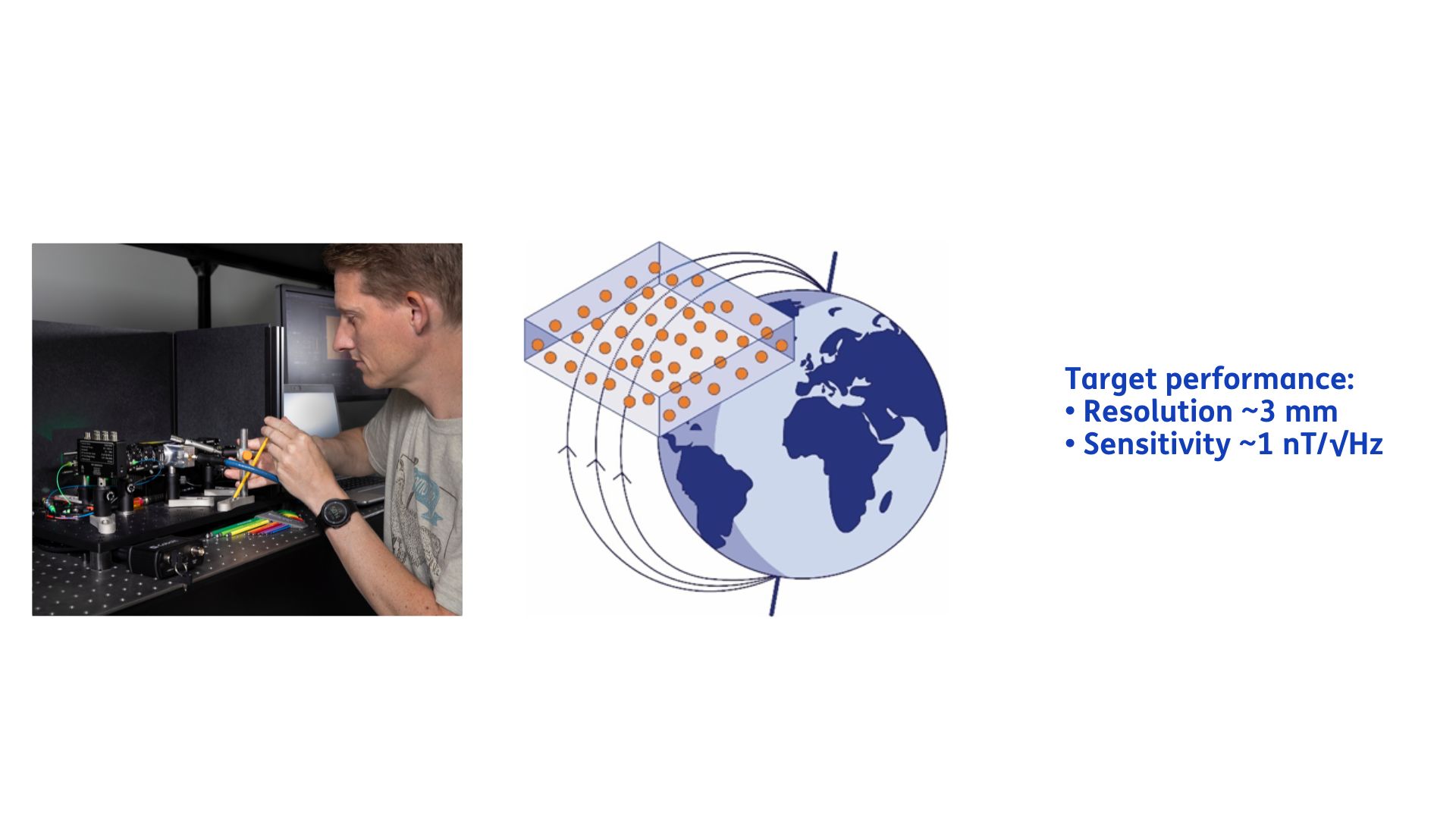
In contrast to the previous instrument, this magnetometer uses an ensemble of NV centres in a macroscopic piece of diamond. Using many defects allows for a compact set-up that can measure highly sensitive vectorial magnetic fields. Comparing these measurements of the local magnetic field to a magnetic field map of that area, these compact magnetometers can be used for position tracking and navigation without needing GPS systems. Another advantage of the compact nature of these instruments is that they can be integrated into other systems, making this an attractive technology for the automotive and medical industry.
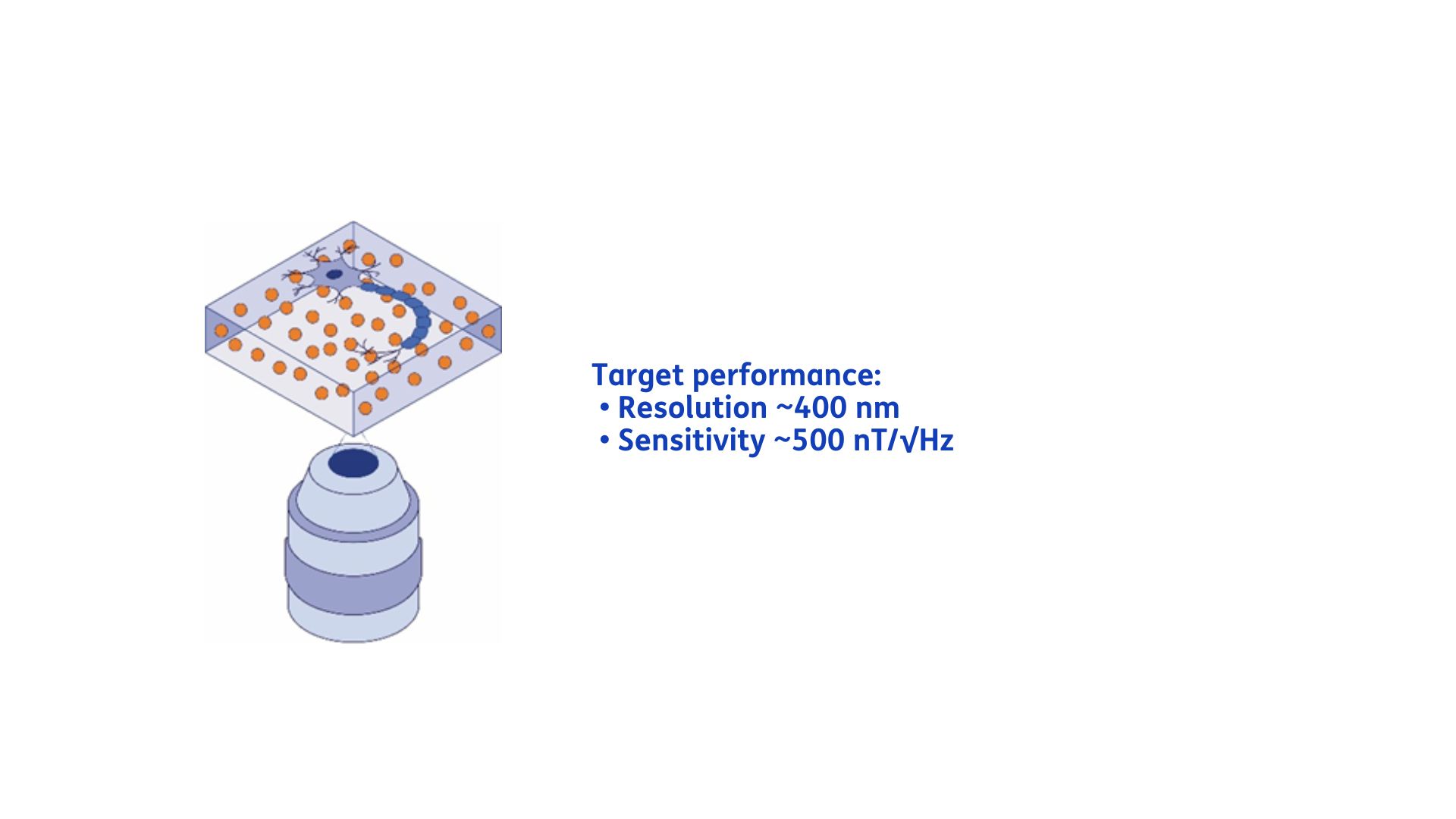
This set-up uses an ensemble of NV’s to measure static magnetic fields at different locations of the sample of interest. Instead of using a photon counter, this instrument uses a camera to measure the magnetic field across a certain region of the sample in a single image. This makes the measurement process very efficient, with a resolution that is determined by that of the imaging system and camera.
What does this mean?
By removing the need to invest in expensive infrastructure, we lower the threshold for developing and testing quantum sensing technology and components. Working on quantum sensing technology and interested in using our open test facilities?
Get inspired
TNO Starts 7-year Quantum Testing and Experimentation Program
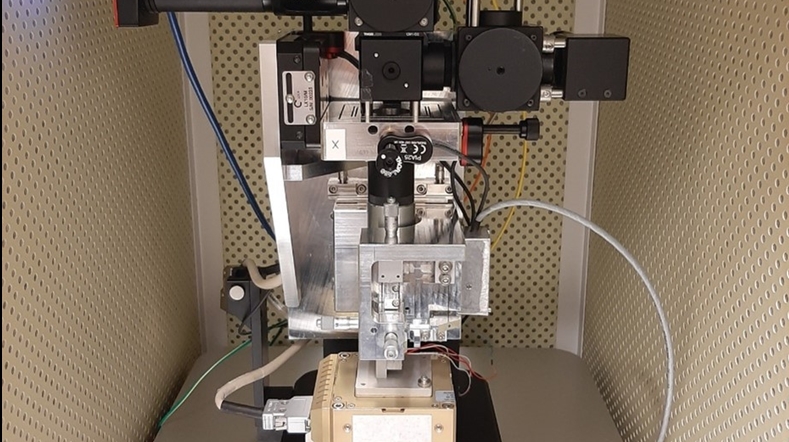

Quantum technology
